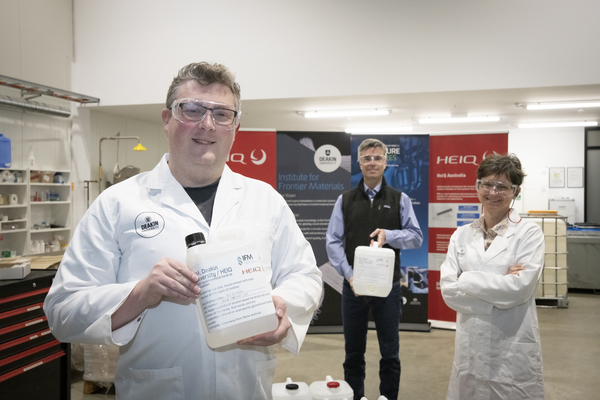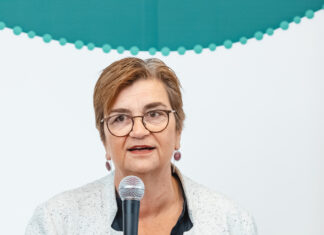Several hundred litres of Geelong-made hand sanitiser will provide a vital stockpile for police, firefighters and other frontline workers thanks to the efforts of Deakin University scientists.
The product, made to World Health Organisation specifications, will protect those who need it most amid current shortages, according to the Institute for Frontier Materials’ (IMF) Alessandra Sutti.
“Hand sanitiser is the first line of defence in stopping the spread of COVID-19 and we are proud to be donating some to Victorian emergency services organisations,” Associate Professor Sutti said.
“In times like these, hand sanitiser and its ingredients are precious and rare – people stockpile it, it becomes very expensive and our emergency services are at risk of being left without.”
Professor Sutti felt compelled to use the institute’s supplies and expertise to protect emergency services workers after seeing similar efforts from other universities overseas.
“I thought, ‘we can do that too’,” she said.
“It’s important that we make available whatever we can spare to ensure our frontline emergency responders aren’t left without and put at risk unnecessarily.
“The team at IFM dug into our stocks, and our pockets, to see what we could forego for the benefit of the community.
“The bonus is that we have the skills and means to formulate to the World Health Organisation’s specific criteria – so we were able to make the first batch quickly.”
So far, the team has made between 200,000 and 300,000 doses of hand-sanitiser, with plans to produce more if required.
“Scientists are driven to make a positive difference to the world, and this project has been no exception,” Associate Professor Sutti said.
“It’s something that we have the skills and capacity to do at a very local level.
“It’s a privilege to do our bit to help the people really putting themselves at risk of infection every day when they head to work to serve their communities, and this is IMF’s way of serving the community too.”
HeiQ Australia, an industry partner of the institute, contributed equipment, supplies and production support to allow the team to make larger quantities of sanitiser, according to Deakin University.









